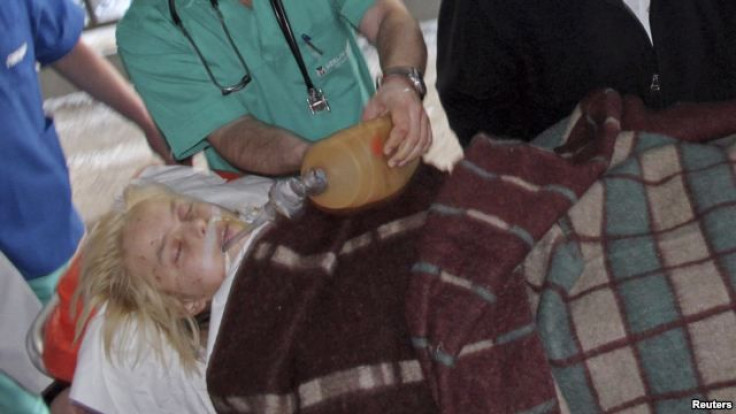Ukraine Jails Three Men For Horrific Rape-Murder

Three Ukrainian men – including two from political families – have been sentenced to long prison terms for the horrific rape and murder of an 18-year-old girl named Oksana Makar.
A court in the southern town of Mykolayiv sentenced Yevgeny Krasnoshchok to life imprisonment, Maxim Prisyazhnyuk to a 15-year term and Artyom Pogosyan to 14 years.
The trio raped Makar in early March and set her body on fire. She suffered for almost three weeks in a hospital before dying from her injuries.
The case sparked fury across Ukraine not only over the savagery of the attack, but investigators’ decision to free two of the suspects early in the probe. Protests and rallies demanding justice led to their re-arrest.
The principal suspect, Krasnoshchok, told officials in a interview broadcast on Ukrainian television that all three men took turns raping the girl in an apartment. When she threatened to go to the police, he said he attempted to strangle her. Subsequently, they took her out to a building site and set her aflame.
RadioFreeEurope/RadioLiberty reported that during her hospital stay, Makar’s kidneys were severely damaged, an arm had been amputated, her lungs were in danger of collapase, and more than half of her body was burned.
A columnist for the paper, Irena Chalupa, wrote that not everyone in the country sympathized with Makar’s terrible plight.
“Oksana’s horrible story laid open the hardness and heartlessness that is part and parcel of today’s Ukrainian society,” Chalupa
“People wrote that she was a slut, that she would pick up men in bars, that she had been detained for soliciting, that she got what was coming to her, that her mother was a chronic alcoholic who was using funds donated for her daughter’s medical care for her own use.
“They also wrote that her alleged attackers were animals and should be killed, that this crime was indicative of a sick, debauched society whose corrupt government cares little for its people and their troubles.”
On the other hand, Makar’s plight also inspired much compassion and giving.
“Thousands of people sent money to assist with Oksana's medical care,” Chalupa wrote.
“They gave blood and reached out to her mother. Sympathy and support poured in. People were shocked by the event and appalled by the authorities' reaction.”
© Copyright IBTimes 2024. All rights reserved.











